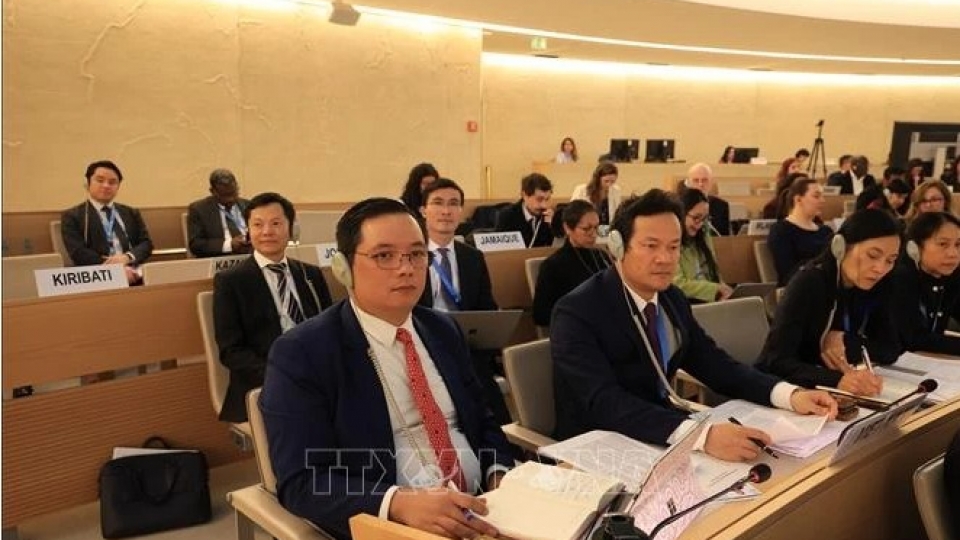Vietnam to report achievements in implementation of Int’l Covenant on Civil and Political Rights
All efforts as well as results of Vietnam in the implementation of the International Covenant on Civil and Political Rights (ICCPR), one of the world’s most important human rights treaties, will be reported by a Vietnamese delegation during a dialogue on its country report, held from July 7-8 in Geneva, Switzerland.

The dialogue is within the framework of the 144th session of the Human Rights Committee (HRC).
Talking to the press, Deputy Minister of Justice Nguyen Thanh Tinh said that Vietnam acceded to the ICCPR on September 24, 1982. The country submitted its fourth report covering 2019 to 2022 to the HRC on March 22, 2023, and responded to the committee’s list of issues on December 19, 2024.
To prepare for this dialogue, the Ministry of Justice submitted to the Prime Minister (PM) for approval the fourth plan for the protection of the ICCPR. Based on the PM’s approval, it established an inter-ministerial working group comprising representatives from nine relevant ministries and sectors.
Considering the dialogue an opportunity to introduce Vietnam’s efforts and achieved results, the Vietnamese delegation will participate in the session with an open, sincere, cooperative, and constructive spirit.
Key messages to be conveyed include the acceleration of the implementation of revolutionary breakthroughs to lead the country into a new era of development, including reforms in the process of law-making and law enforcement, and continuing to build a socialist rule-of-law state of the people, by the people, and for the people.
In addition, the expansion of democracy and the creation of conditions for people to participate more actively in state management are receiving increasing attention, thus ensuring better protection and guarantee of citizens’ civil and political rights. Vietnam reaffirms its consistent commitment to prioritising the best possible resources and taking comprehensive measures to promote, protect, and better ensure the enjoyment of civil and political rights.
The information and evidence presented in the report as well as during the dialogue will serve as a clear response, refuting distorted information about the human rights situation in the country, the deputy minister stated.
For issues raised that are inaccurate or not objective regarding the domestic human rights situation, the delegation will engage in frank and straightforward dialogue without ignorance, Tinh said, adding that for matters that are clear, they will provide information immediately; but for issues where information is insufficient, they will request additional details in order to verify and respond later.
Regarding the issue of ensuring and promoting human rights in Vietnam, the official affirmed that this is a consistent and overarching viewpoint of the Party and State. The Party and State always pursue the policy of building a rule-of-law state with the aim of ensuring human rights, individual freedom, and promoting fairness and equality within society. From this stance, in the process of developing and improving the legal system, enforcing laws, and advancing judicial reform, the Party has issued numerous resolutions and conclusions to promote and protect human rights.
Notably, the viewpoint that places human beings at the centre, as the subject, the most important resource, and the goal of development has been fully institutionalised in Vietnam’s Constitution and legal system.
In recent years, the National Assembly has adopted numerous laws and resolutions related to human rights and citizens' rights, thereby contributing to the concretisation of the provisions of the Constitution as well as the international human rights treaties to which Vietnam is a party.
In addition, the country has actively worked to improve the relevant legal framework to create conditions for individuals to enjoy their rights to the fullest extent possible. At the same time, it has continuously refined the legal framework on the organisation of the state apparatus, enhanced the effectiveness of law enforcement, and accelerated administrative reforms, all aimed at the ultimate goal of better serving the needs of the people, businesses, and society, added Tinh.




